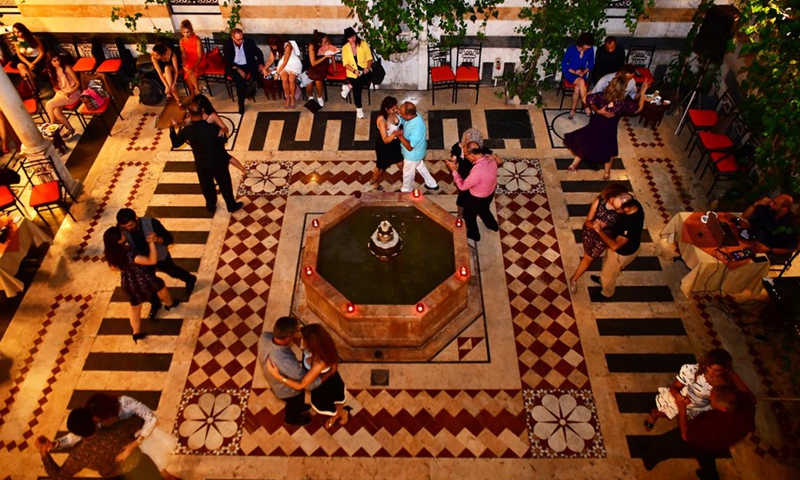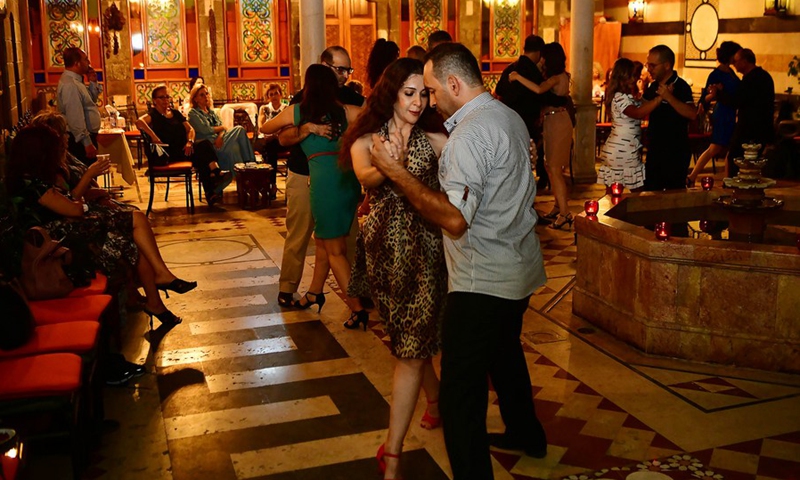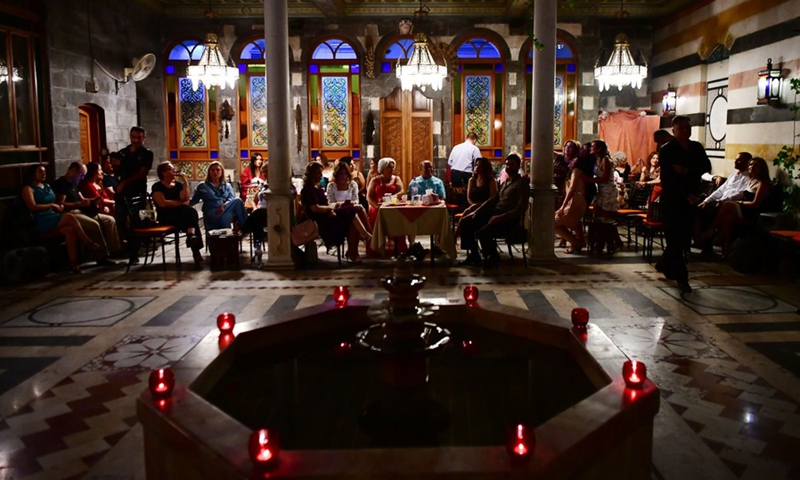
Dancers perform Tango during a milonga held in Damascus, the capital of Syria, on Oct. 5, 2022.(Photo: Xinhua)

Dancers perform Tango during a milonga held in Damascus, the capital of Syria, on Oct. 5, 2022(Photo: Xinhua)

Dancers perform Tango during a milonga held in Damascus, the capital of Syria, on Oct. 5, 2022(Photo: Xinhua)
Securing outfits and dancing shoes for their milongas, Syrian Tango dancers are fighting to keep their beloved art alive in a country where people nowadays can only think about securing food on the table after the U.S. sanctions left them no window to breath from.
Most Tango dancers in Syria are ordinary people who found sanctuary and gain energy to carry on in dancing.
At a Tango class in the capital Damascus, there are lawyers, doctors, and actors practicing the Argentinian Tango.
Hasmik Salikyan, one of their coaches, told Xinhua that there were around 250 Tango dancers in Syria two years ago, but the number dwindled to 120.
"The economic sanctions imposed by the United States have made it difficult for those dancers to carry on with their passion after their livelihoods have been affected by the deteriorating financial situation," she noted.
"Unfortunately, the sanctions are not only economic but also political as coaches from outside Syria refused to come," she added.
For his part, Fuad Bailani, another coach, told Xinhua that even though Tango is a form of art, it has also been affected by the Syrian crisis like any aspect of life.
He said several activities, festivals, and events had been canceled during the crisis that erupted more than 11 years ago.
The main obstacles include the big gap between local and foreign currencies as well as the difficulties facing the travel arrangements of Syrian dancers, he added.
"For many people, Tango is a cultural thing that is not so important; but for me, Tango is as important as food and other life necessities because it's important for the soul," he said.
At one of the milongas held in the old quarter of Damascus, dancers were all dressed up and shone with joy. For two hours, the music kept playing, and the dancers took turns, showing their skills.
Wiam al-Khous, an actress, told Xinhua during the milonga that she had become so attached to Tango because the music had saved her since the beginning of the crisis.
"The beats of music are like life, there are ups and downs, and swinging with the music teaches me how to dance with life and get adapted to its ups and downs," she said.
For Ghazwan Malki, another Tango dancer whose occupation is a lawyer, learning Tango is not easy.
"The beauty of Tango is that it helps me to get out of the box I live in. Regardless of any crisis, when I listen to music, I feel like I'm embraced, and this gives an inner peace," he told Xinhua.
"It also gives me the ability and positive energy to carry on," he added.
